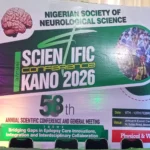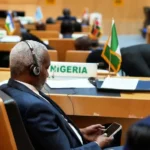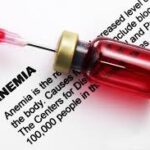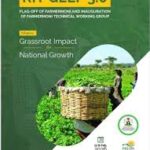By Abujah Racheal
Two Nigerian innovations are among eight global finalists for the Trinity Challenge, which seeks data-driven solutions to tackle antimicrobial resistance and improve access to effective antibiotics.
The Trinity Challenge, an international competition supported by the Hong Kong Jockey Club Charities Trust and other partners, made the announcement on Tuesday via a webinar.
The challenge recognises data-driven innovations that address the twin crises of substandard antibiotics and poor stock control in low- and middle-income countries.
The shortlisted teams would compete for a one-million-euro prize to be shared by two winners, with the announcement scheduled for August 20.
The News Agency of Nigeria (NAN) reports that Nigeria’s “Com-WATCH” and “RxBot” emerged as finalists from a pool of 171 entries submitted from 51 countries.
Com-WATCH tracks antibiotic stocks and detects counterfeit drugs using community data, while RxBot is a multilingual WhatsApp-based tool for monitoring substandard and falsified antibiotics in vulnerable populations.
Also representing Africa among the finalists are solutions from Cameroon, Kenya, Malawi, Namibia, the Democratic Republic of the Congo, and Ethiopia.
The finalists’ projects range from AI-powered pharmacy platforms to paper-based field detection tools integrated with mobile apps.
Meanwhile, Prof. Sally Davies, UK Special Envoy on AMR and Chair of the Trinity Challenge, emphasised the global significance of the initiative.
“We are in the middle of an antibiotic emergency. Lack of access to effective antibiotics, coupled with the proliferation of falsified drugs, is accelerating resistance in communities that can least afford it.
“These finalists demonstrate that innovation can help turn the tide,” Davies said.
NAN recalls that antibiotic resistance, which currently claims millions of lives globally, is projected to cause 39 million deaths over the next 25 years if left unchecked.
Low and medium-income countries like Nigeria bear the brunt of this crisis, with nearly three million annual deaths from treatable bacterial infections.
In Nigeria, health experts have long raised concerns over the availability of quality antibiotics, especially in underserved rural communities.
Substandard medicines not only fail to treat infections effectively, but also fuel resistance, making future infections harder to treat.
Dr Chika Eze, an AMR researcher based in Abuja, applauded the local innovations:
“Tools like RxBot are crucial in our fight against fake drugs.
“When communities have real-time access to quality surveillance, they are better equipped to demand and receive effective treatment,” Eze said.
The Trinity Challenge was first launched in response to lessons learned from the COVID-19 pandemic, which exposed global weaknesses in health surveillance and preparedness.
Its current iteration aims to empower LMICs with sustainable, technology-driven solutions to AMR.
The award ceremony, scheduled for August 20, will be hosted virtually and feature pitches from all eight finalists.
The two winning teams will receive funding to scale their solutions, potentially impacting millions of lives across Africa and Asia.
As global attention shifts to the role of data and community engagement in healthcare, Nigeria’s innovations stand as a testament to the country’s potential in tackling global health threats through local ingenuity. (NAN)(www.nannews.ng)
Edited by Kadiri Abdulrahman












